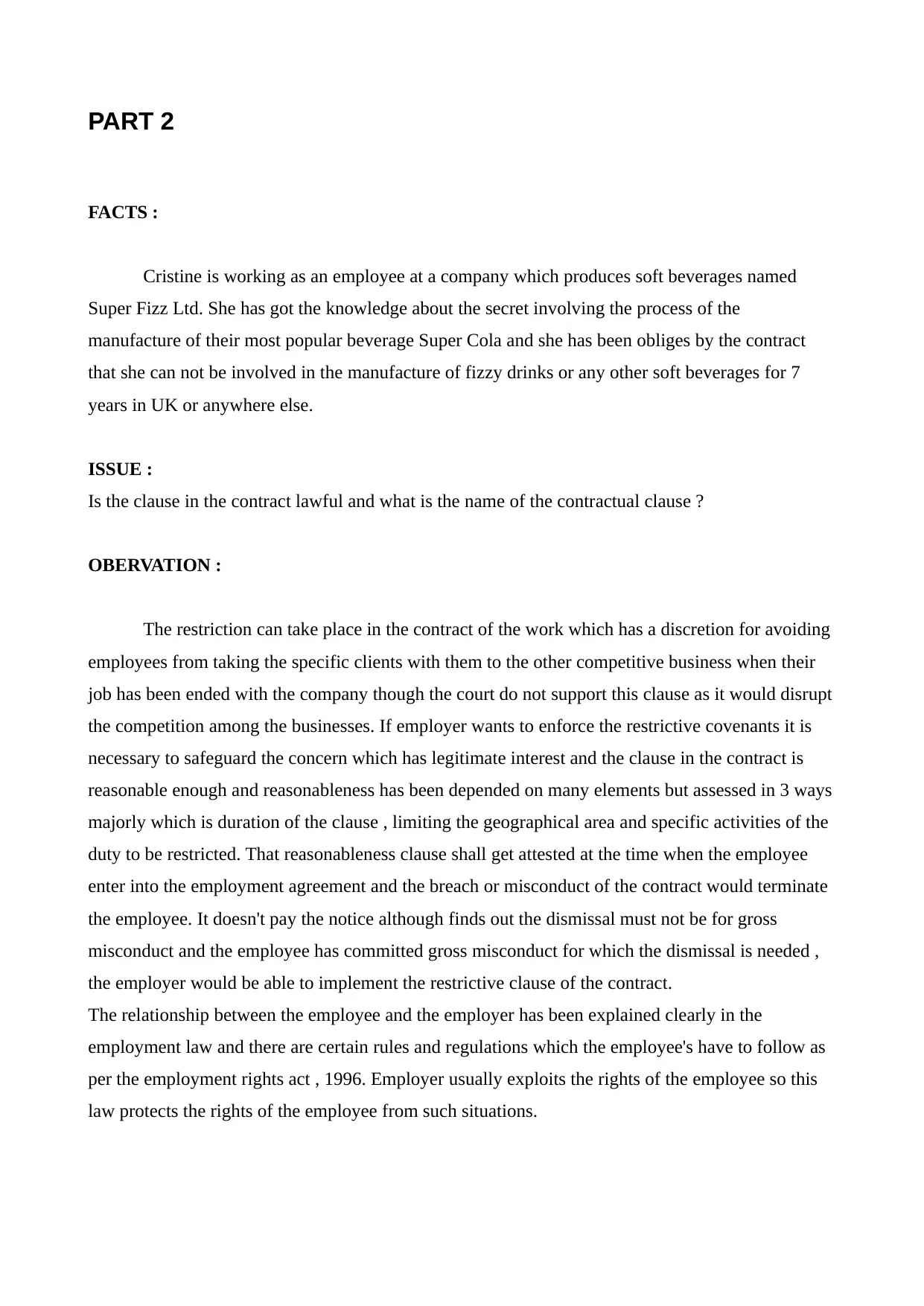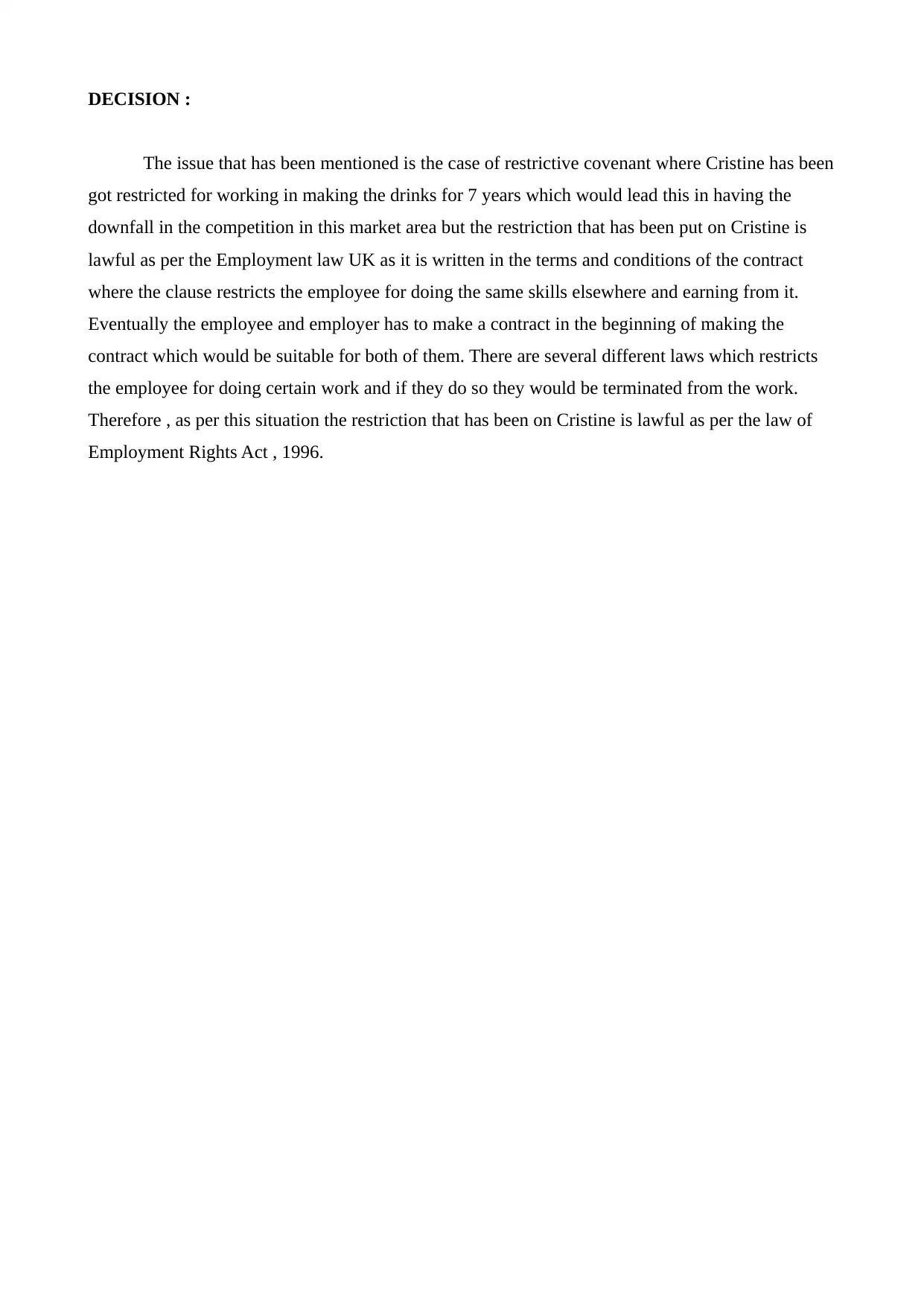Law for Business Managers (LAW011-1) - Restrictive Covenant Analysis
VerifiedAdded on 2023/06/07
|2
|520
|148
Homework Assignment
AI Summary
This assignment solution addresses a scenario involving a restrictive covenant in an employment contract. The case involves an employee, Cristine, who is restricted from working in the soft beverage industry for seven years following her employment at Super Fizz Ltd. The analysis focuses on the legality of this clause under UK employment law, specifically referencing the Employment Rights Act 1996. The solution examines the concept of restrictive covenants, the importance of reasonableness in such clauses, and the factors courts consider when assessing their validity. The analysis concludes that the restriction on Cristine is lawful, as it is a term of the employment contract and does not violate the Employment Rights Act. The assignment highlights the balance between protecting an employer's legitimate interests and an employee's right to work.
1 out of 2








![[object Object]](/_next/static/media/star-bottom.7253800d.svg)